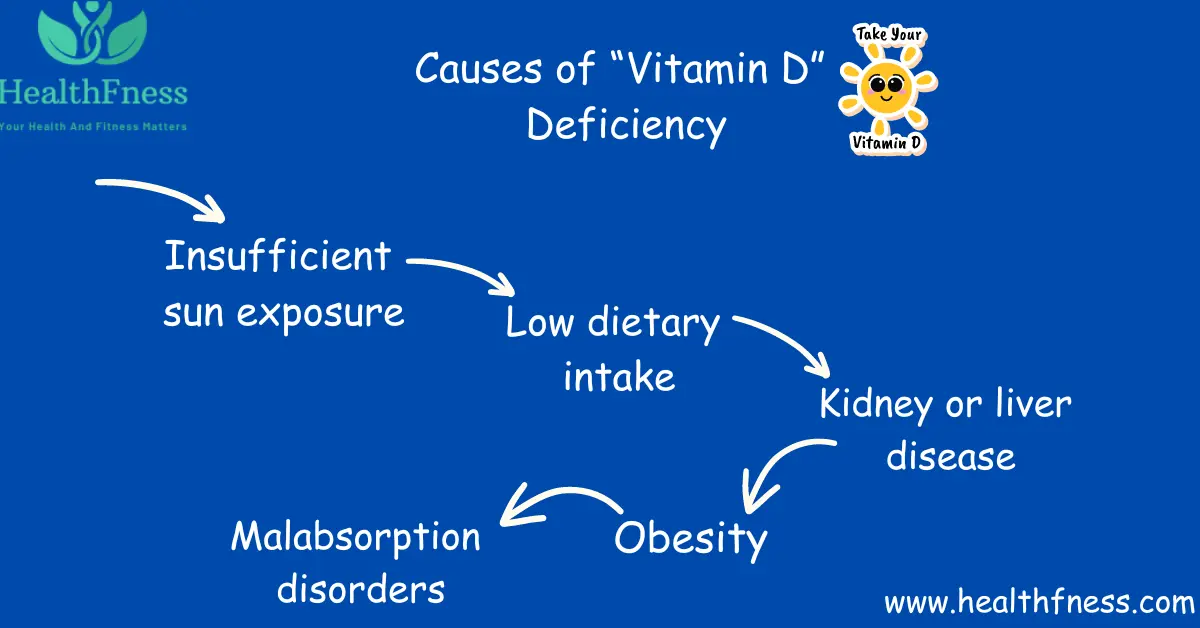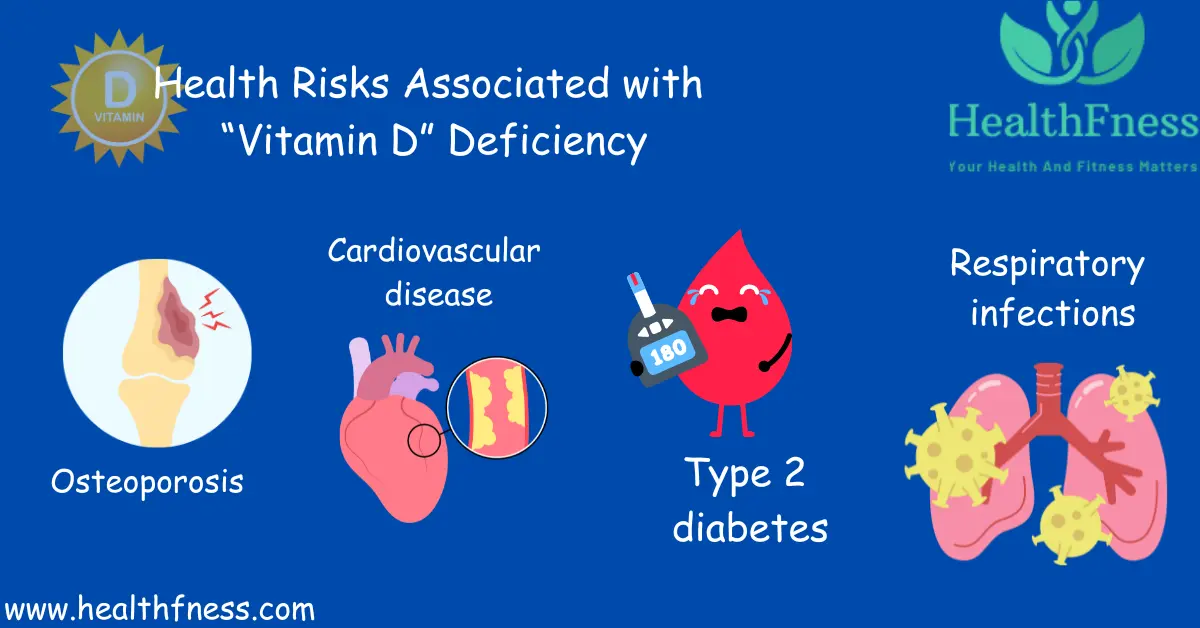Introduction
Before exploring Vitamin D Deficiency ICD 10 must have general knowledge of Vitamin D for better understanding. Vitamin D is one of the vitamins which is a basic need for the body to work properly and it is a fat-soluble vitamin that absorbs and uses calcium and phosphorus, which are important for building and maintaining strong bones.
Why is Vitamin D called Vitamin D?
After vitamins A, B, and C, vitamin D was the fourth vitamin to be discovered, hence its name. The term “vitamin” refers to a group of organic compounds that are essential for normal growth and nutrition but cannot be produced by the body in sufficient quantities and must be obtained from the diet or supplements to maintain a healthy life☺️.
Vitamin D Deficiency ICD 10
Vitamin D Deficiency is a condition when the body is not producing the required amount of Vitamin D and this lead to shortness of Vitamin D which is called Vitamin D deficiency. ICD-10 (International Classification of Diseases. Vitamin D deficiency ICD 10 which is also called Vit D deficiency ICD 10 is E55.9.
You May Also Like To Read: Cystic Fibrosis ICD 10: Unpacking Cystic Fibrosis and Cracking the Code ICD-10
History Of Vitamin D Deficiency ICD 10
The specific ICD-10 code for vitamin D deficiency, E55.9, was established as part of this revision. Before ICD-10, there were no specific codes for vitamin D deficiency and it has no unique code, and it was typically classified under more general categories such as “other nutritional deficiencies” or “other specified diseases of the bone🦴 and cartilage.”
You May Also Like To Read: Understanding of Dangerous Prediabetes Types Causes And Treatment
Types of vitamin D Deficiency
There are 2 major types of Vitamin D Deficiency:
Dietary vitamin D deficiency
This occurs when a person’s diet does not provide enough vitamin D. This can happen in people who follow a strict vegan diet or who have a malabsorption disorder🫠 that prevents them from absorbing enough vitamin D from their food.

Sunlight vitamin D deficiency
This occurs when a person’s skin does not produce enough vitamin D from exposure to sunlight. This can happen in people who live in areas with limited sunlight, wear clothing that covers most of their skin, or spend most of their time indoors.
Causes of Vitamin D Deficiency ICD 10:E55.9
Every disease has several causes so here are several causes of vitamin D deficiency, including:
Insufficient sun exposure
The skin produces vitamin D when exposed to sunshine. You might not be getting enough vitamin D if you spend a lot of time indoors or if you reside in an area with little sunlight.
Low dietary intake
Natural sources of vitamin D include fatty fish, egg yolks, and certain mushrooms. Nevertheless, the majority of people do not consume enough vitamin D in food.

Malabsorption disorders
The body’s capacity to absorb vitamin D from food can be hampered by illnesses like celiac disease, Crohn’s disease, and cystic fibrosis.
Obesity
As a fat-soluble vitamin, vitamin D is stored in fat tissue, which contributes to obesity. Vitamin D levels in obese people may be reduced because it is stored in fat rather than being available in the bloodstream.
Kidney or liver disease
The liver and kidneys are involved in the conversion of vitamin D to its active form. People with liver or kidney disease may have impaired vitamin D metabolism, leading to deficiency.
You May Also Like To Read: What Is The Highest Blood Sugar Ever Recorded?
Symptoms of Vitamin D Deficiency ICD 10:E55.9
Symptoms of vitamin D deficiency can change depending on the level of the deficiency. Some common symptoms of vitamin D deficiency include:
Bone pain or tenderness
Vitamin D is important for maintaining bone health, so a deficiency can lead to bone pain or tenderness.
Weakness Of Muscle
Vitamin D helps to regulate muscle function, so a deficiency can cause muscle weakness.
Fatigue
Vitamin D deficiency has been associated with increased fatigue and decreased energy levels.
Depression
Some studies have linked vitamin D deficiency with an increased risk of depression.
Impaired wound healing
Vitamin D is important for wound healing so a deficiency can impair the body.
Health Risks Associated with Vitamin D Deficiency ICD 10
Every disease increases the risk of many other diseases. Vitamin D deficiency can increase the risk of several health problems, including:

Osteoporosis
Vitamin D insufficiency can result in decreased bone density, which makes bones more brittle and raises the risk of fractures. Vitamin D is essential for bone health.
Cardiovascular disease
Heart disease, high blood pressure, and stroke are all at an elevated risk when there is a vitamin D deficit.
Type 2 diabetes
Vitamin D deficiency has been linked to an increased risk of type 2 diabetes, although more research is needed to fully understand this connection.
Respiratory infections
Vitamin D is important for immune function, and a deficiency may increase the risk of respiratory infections, such as the common cold, flu, and pneumonia.
Cognitive impairment
Some studies have suggested that vitamin D deficiency may be associated with an increased risk of cognitive impairment and dementia.
You May Also Like To Read: The 8-week blood sugar diet: What’re The Benefits?
Diagnosis and Treatment of Vitamin D Deficiency
Diagnosis
The level of vitamin D in the blood can be used to diagnose vitamin D insufficiency. The standard test is called the 25-hydroxyvitamin D blood test (25(OH)D), which measures the level of vitamin D in the bloodstream. A level below 20 nanograms per milliliter (ng/mL) is considered deficient, while levels between 20 and 30 ng/mL are considered insufficient.
Treatment
Increasing vitamin D intake through diet, supplements, or sunshine exposure is the primary treatment for vitamin D deficiency. The degree of the deficiency and the underlying cause will determine the recommended course of treatment. Increasing sunshine exposure and including foods high in vitamin D in the diet may be adequate for mild cases.
Prevention Of Vitamin D Deficiency ICD 10
Prevention of vitamin D deficiency involves ensuring adequate intake of vitamin D through:
Diet
Include vitamin D-rich foods in your diet, such as fatty fish (e.g. salmon, tuna, mackerel), egg yolks, fortified dairy products, and fortified cereals.
Supplementation
Consider taking a vitamin D supplement if you are at risk of deficiency or if you have been diagnosed with a deficiency.
Sun exposure
Spend some time outdoors in the sun each day, especially when the sun is strongest (usually between 10 a.m. and 3 p.m.).
FAQS
What is the ICD code 10 for vitamin D deficiency?
The ICD-10 code for vitamin D deficiency is E55.9. This code falls under the category of "nutritional deficiencies" and specifically refers to "Vitamin D deficiency, unspecified".
What causes vitamin D deficiency?
Limited sun exposure and poor diet and certain medical conditions lead to vitamin D deficiency.
What is vitamin D deficiency ICD-9?
The ICD-9 code for vitamin D deficiency is 268.9. However, it's important to note that the ICD-9 code system was replaced by the ICD-10 system on October 1, 2015. Therefore, healthcare providers now use the ICD-10 code system to diagnose and report vitamin D deficiency. The ICD-10 code for vitamin D deficiency is E55.9.
What is Vitamin D deficiency?
Vitamin D deficiency happens whilst the body lacks an good enough quantity of Vitamin D, a vital nutrient for bone health, immune function, and normal properly-being. It can result in various health problems, together with weakened bones, muscle weak point, and accelerated susceptibility to infections.
What is ICD-10?
What is the ICD-10 code for Vitamin D deficiency?
The ICD-10 code for Vitamin D deficiency is E55.Nine. This code is used to suggest a deficiency in Vitamin D with out specifying the severity or purpose of the deficiency.
How is Vitamin D deficiency diagnosed?
Vitamin D deficiency is diagnosed through blood assessments that measure the extent of Vitamin D within the bloodstream. These assessments normally degree the attention of 25-hydroxyvitamin D [25(OH)D], it truly is the number one shape of Vitamin D circulating inside the blood.
What are the risk factors for Vitamin D deficiency?
Risk elements for Vitamin D deficiency consist of restrained sun exposure, darkish pores and skin pigmentation, growing older, weight problems, sure scientific conditions (including malabsorption problems), and inadequate nutritional consumption of Vitamin D-wealthy ingredients or dietary supplements.
Conclusion
In summary, vitamin D deficiency is a common disorder that can be brought on by a variety of things, including insufficient sun exposure, a poor diet, malabsorption, obesity, kidney or liver disease, and some drugs can cause lake of vitamin D. A lack of vitamin D can cause a variety of symptoms, such as muscle weakness, bone discomfort, and an increased risk of fractures and chronic illnesses. E55.9 is the ICD-10 code for a lack of vitamin D.

Dr. Mark Jenkins, MD - General Physician (California, USA)
Dr. Mark Jenkins is a board-certified general physician based in the United States, specializing in preventive medicine, nutrition, and lifestyle health. With years of clinical experience in primary care, he is dedicated to helping patients and readers alike make informed, science-based decisions about their well-being.
As a trusted medical reviewer and contributor to Healthfness.com, Dr. Jenkins ensures that all health content meets the highest standards of accuracy, safety, and evidence-based medicine. His expertise bridges modern medical science with practical, everyday wellness strategies, making complex topics approachable for all audiences.
Outside the clinic, Dr. Jenkins is passionate about living the healthy lifestyle he teaches. He enjoys hiking with his dog, experimenting with vegetarian cooking, and exploring the latest health research. He believes that small, consistent lifestyle changes lead to lasting health improvements, and he aims to inspire readers to take proactive steps toward a healthier, happier life.
Explore more of Dr. Jenkins’ evidence-based insights at Healthfness.com



